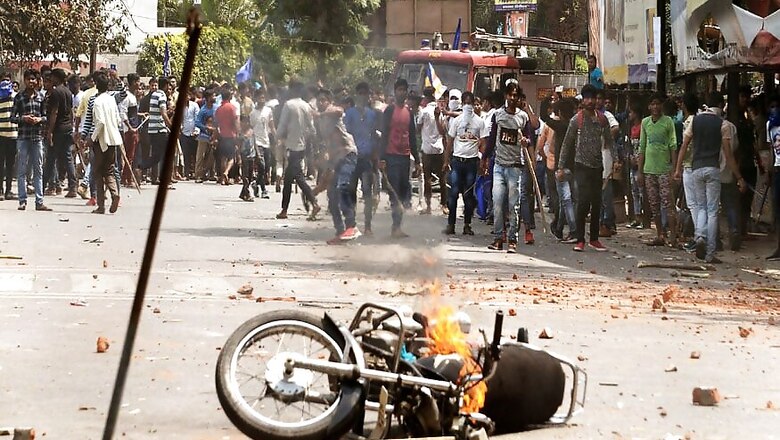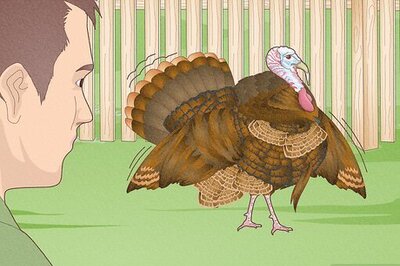
views
New Delhi: Taking note of the widespread violence during Monday’s Bharat Bandh protests by Dalit organisations, the National Commission of Scheduled Caste (NCSC) has asked three states to furnish details on the scale of violence and if there was any “conspiracy” behind the incidents/
Protests by Dalit organisations during Bharat Bandh turned violent and left 10 people dead, hundreds injured and property worth crores destroyed in the affected states. Seven died in Madhya Pradesh, two in Uttar Pradesh and one in Rajasthan.
On Wednesday, Murugan Loganathan, NCSC Vice-Chairman, told News18 that the commission has written to the governments of Uttar Pradesh, Rajasthan and Madhya Pradesh.
“We have written to all these states to send a detailed report on the scale of violence, on an urgent basis. We expect to get it by tomorrow,” said Murugan.
Murugan further added, “One cannot rule out the fact that this violence must have been the result of some instigating force or a conspiracy”. The commission has also asked the "states to submit evidence to prove such a conspiracy, if any”.
Soon after violent protests engulfed several states, including Madhya Pradesh, Rajasthan, Uttar Pradesh, Bihar and some others, Congress accused the BJP of “fueling tensions” to get an edge in the upcoming elections.
BSP supremo Mayawati too hinted at a conspiracy and said, “We condemn the act of violence. Some anti-social elements were sent to disrupt the Bharat Bandh and they were the ones who were involved in violence. Police and administration should identify such people and punish them.”
On Tuesday, a mob of 5,000 people, protesting against Monday’s Bharat Bandh, set ablaze houses of Dalit MLA Rajkumari Jatav and former MLA Bharosilal Jatav in the Hindaun City, District Collector, Karauli. While Rajkumari Jatav is from the ruling BJP, Bharosilal Jatav is a former Congress legislator who also served as a minister in the state.
Monday’s Bharat Bandh was called against a March 20 order issued by the Supreme Court that banned automatic arrests and registration of criminal cases under the SC/ST (Prevention of Atrocities) Act, 1989.
Murugan said that soon after the SC verdict, the commission had called an urgent meeting on March 22 and by March 28, they approached President Ram Nath Kovind and Prime Minister Narendra Modi, apprising them about the repercussions of the verdict and why a review petition must be filed.
On Tuesday, the Supreme Court refused to roll back its earlier order but also agreed to hear the review petition on April 10.
To the question of why the government changed its stand in the court from arguing that the "act was misused" to filing a review petition, Murugan told News18, "Of course there were instances of misuse but even implementation was not proper. The commission now has 35 thousand cases pending.”


















Comments
0 comment